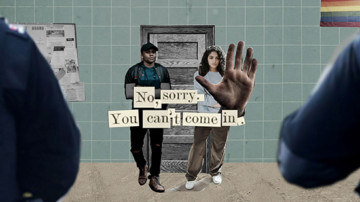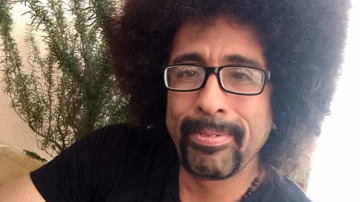
Hi! My name’s Kevin and today I’m going to be answering some questions about the Medically Supervised Injection Centre. So, if you hear me refer to the MSIC, you know that’s what I mean.
I’ve been given a handful of questions to answer, so, without any further ado, we’ll get straight into it.
First question: What was it like in Kings Cross before the injection centre opened?
It was a bit like the Wild West, really. There were a lot of overdoses because people were shooting up in parks, public toilets, toilets in pubs, stairwells, blocks of flats. Just anywhere you could get five minutes to have an injection. In those days, it was illegal to carry injecting equipment with you, so it was all discarded all over the place. It was a bit of a mess! There was a lot of disease running rampant because equipment was being shared and it was just chaos, really. It was just basically chaos.
Next question: What first brought you to the MSIC?
It was a friend, actually. I was a bit wary of this place when it first opened. I thought: ‘How are they giving him a place to inject drugs?’. And I thought we’d be under surveillance, so I thought the police would be waiting in the back. I also had this thing in the back of my head: ‘What’s a church doing running a supervised injection centre?’. But, after a few years of being opened, a friend of mine brought me and I went to ‘stage one’, where you enter the building. You give you name, and it doesn’t even have to be a real name; it’s just any name. And you choose a password of your own.
Then you move to ‘stage two’, where injections take place under the supervision of nurses. It’s clean, hygienic new equipment. And you can then discard your used equipment.
And then there’s ‘stage three’, which is a space for coffee, tea, discussions with counsellors, making a phone call, using the computer to chase up things on the net, check your emails, and so forth. It’s almost like a drop-in centre, but, again, you’re under this sort of watchful eye (without being stared at!) of a nurse to make sure that you’re not in the throes of overdose. Because this is a ‘medically supervised injection centre’, with an emphasis on the ‘medically’. No one dies here. No one has died and It’s 19 years in the running. So, well done!
Another question: What led you to use drugs?
Oh! Do we have enough time to discuss this? Basically: life. I grew up in child welfare institutions and in prisons. And it wasn’t a very nice place to be a young kid and a young adult. I’ve been diagnosed with PTSD, depression, and a few other things that I don’t actually agree with. But I used opiates, which is my drug of choice, as a way of medicating life’s issues. And I don’t want that to sound like a cop-out. Most of my life, I worked a full-time job. I’ve had some very good jobs. But I had to medicate myself with heroin. I equate it to being like a diabetic who needs insulin. I only did heroin to get through the day.
Besides allowing injecting, what other help does MSIC offer its service users?
A massive amount of stuff goes on here. As I said, it’s a supervised injection centre, but you’re able to access housing, you’re able to access basic medical services. You can access dental services, podiatrists; anything that’s available to basically anyone in any normal physician’s clinic can happen here. I’ve seen dressings get changed. I’ve seen referrals for people who have hip replacements. But another big thing here is that it’s a gateway to treatment. Even though it’s a place to ‘shoot up’ drugs and take your drugs, it’s also a gateway towards treatment and that’s where I started my journey. I’m ashamed to admit it but I’ve had over 2,000 admissions here through the front door of MSIC and that’s a lot.
Last question: How has the injection centre supported you?
Massively. As I said, they helped me to get into treatment. And I’m still under treatment. I won’t go into what it is, but it’s a once-a-month injection. It enables me to have a life. I’m not tied to any clinic for a month. I’m not tied to a dosing line. So, I can use my life experiences and skills to work in the area of decriminalisation of personal possession and the use of drugs, and to expand treatment facilities. For example, rehabs and detoxes. As I said, it helped me get into treatment, but it also helped me expand my life and voice; be able to say what I mean. I’ve made new friends. I’ve made friends with people I’d never thought I’d be talking to ever in my life. People who I considered were too ‘straight’ to be talking to and now they’re mates, you know? I have dinner with them, celebrate birthdays with them, Christmas. It’s a whole new life.
Thank you for listening. I hope this is helpful.
Photo: Uniting Medically Supervised Injecting Centre
This story has been transcribed and edited for clarity based on the video displayed above, produced by Uniting about the Uniting Medically Supervised Injecting Centre.


